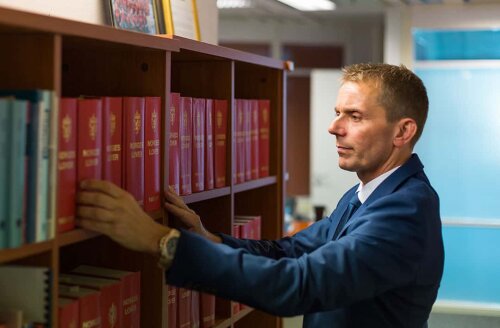Best Domestic Violence Lawyers in Tromsø
Share your needs with us, get contacted by law firms.
Free. Takes 2 min.
Free Guide to Hiring a Family Lawyer
List of the best lawyers in Tromsø, Norway
About Domestic Violence Law in Tromsø, Norway
Domestic violence, known in Norwegian as "vold i nære relasjoner," is a serious crime in Tromsø and throughout Norway. It refers to any form of physical, psychological, sexual, or economic abuse occurring within close relationships, such as between spouses, partners, family members, or people living together. Norwegian law recognizes the comprehensive impact of such violence and provides legal protections and support for victims. Authorities in Tromsø, including the police and social services, cooperate to address these issues, prevent further harm, and provide adequate help to those affected.
Why You May Need a Lawyer
Individuals facing domestic violence may need a lawyer for several reasons. If you are a victim, a lawyer can help you obtain protective measures, such as restraining orders or emergency accommodation, and assist you in reporting the abuse to the police. Legal counsel is also essential for guiding you through criminal proceedings, custody cases, divorce, or financial settlements. If you are accused of domestic violence, you also have the right to legal representation to ensure your fair treatment in the legal process. Lawyers in Tromsø are experienced with sensitive cases and can protect your rights while helping you understand your options.
Local Laws Overview
Norwegian law takes a strong stance against domestic violence. Key sections of the Norwegian Penal Code prohibit physical injuries, threats, and psychological abuse within close relationships. Domestic violence is treated as an aggravating factor in criminal sentencing. The police in Tromsø have authority to immediately remove an abuser from the home and issue temporary restraining orders. Victims have the right to receive support and protection measures under the Violence in Close Relationships Act and the Stalking and Harassment Act. Furthermore, perpetrators may face imprisonment, fines, and long-term restraining orders. Children exposed to domestic violence are given special consideration and protection under both criminal and child welfare laws.
Frequently Asked Questions
What is considered domestic violence under Norwegian law?
Domestic violence includes physical harm, threats, psychological abuse, sexual violence, stalking, and economic control or deprivation when committed by someone in a close relationship with the victim.
How do I report domestic violence to the police in Tromsø?
You can contact Tromsø police by calling the emergency number 112 for immediate help or visiting your local police station. Reporting can also be made through other channels if you are unable to speak safely.
Can I get a restraining order against my abuser?
Yes, Norwegian law allows you to apply for a restraining order (besøksforbud) through the police or the courts. In urgent cases, the police can issue a temporary order to protect you.
Will the abuser be removed from our shared home?
If there is an immediate threat, the police can force the abuser to leave the residence. Courts can also order the removal of a perpetrator as a protective measure.
Are there shelters for domestic violence victims in Tromsø?
Yes, there are crisis centers (krisesenter) in Tromsø that provide emergency accommodation, counseling, and practical help to victims and their children.
What legal support is available for children exposed to domestic violence?
Children have special rights to protection. Child welfare services can intervene to ensure their safety, and courts can limit or alter custody and visitation arrangements to protect them.
How can I access free or subsidized legal advice?
Victims of domestic violence may qualify for free legal aid (fri rettshjelp) depending on their circumstances. You can consult the Tromsø municipal services, legal aid offices, or organizations supporting abuse victims for guidance.
Will reporting domestic violence affect my residence permit if I am not a Norwegian citizen?
If you are in Norway on a family immigration permit, reporting domestic violence does not jeopardize your right to stay. There are legal provisions to protect victims’ residency regardless of their abuser’s status.
What happens if the abuser violates a restraining order?
Violating a restraining order is a criminal offense and can result in arrest, prosecution, and harsher penalties for the perpetrator.
Can domestic violence cases be resolved outside of court?
Some issues, such as child arrangements or financial matters, can be mediated, but serious criminal matters are generally handled by the police and courts for the safety of victims.
Additional Resources
- Tromsø Police District: Handles emergency reports and legal enforcement for domestic violence cases
- Tromsø Crisis Center (Krisesenter): Provides safe shelter, counseling, and legal guidance for victims and families
- Norwegian Directorate for Children, Youth, and Family Affairs (Bufetat): Offers support services for children and families affected by violence
- Legal Aid Offices (Rettshjelpskontor): Advice on legal rights, applications for free legal aid, and assistance in finding qualified lawyers
- Tromsø Municipality Social Services: Help for accessing welfare, housing, and crisis support
- The Norwegian Mediation Service (Konfliktrådet): May handle certain non-criminal family conflicts
Next Steps
If you or someone you know is affected by domestic violence in Tromsø, prioritize your safety and seek immediate help if in danger by calling the emergency number 112. For non-emergency assistance, contact the local police, crisis center, or social services for support. After ensuring safety, consider seeking legal advice to understand your rights and available protections. You may consult a lawyer specializing in domestic violence at a legal aid office or through referrals from support organizations. Collect any available evidence such as messages, photos, or witness details, and document incidents of abuse. Taking these steps will help protect your rights and facilitate a safer outcome for you and your loved ones.
Lawzana helps you find the best lawyers and law firms in Tromsø through a curated and pre-screened list of qualified legal professionals. Our platform offers rankings and detailed profiles of attorneys and law firms, allowing you to compare based on practice areas, including Domestic Violence, experience, and client feedback.
Each profile includes a description of the firm's areas of practice, client reviews, team members and partners, year of establishment, spoken languages, office locations, contact information, social media presence, and any published articles or resources. Most firms on our platform speak English and are experienced in both local and international legal matters.
Get a quote from top-rated law firms in Tromsø, Norway — quickly, securely, and without unnecessary hassle.
Disclaimer:
The information provided on this page is for general informational purposes only and does not constitute legal advice. While we strive to ensure the accuracy and relevance of the content, legal information may change over time, and interpretations of the law can vary. You should always consult with a qualified legal professional for advice specific to your situation.
We disclaim all liability for actions taken or not taken based on the content of this page. If you believe any information is incorrect or outdated, please contact us, and we will review and update it where appropriate.












